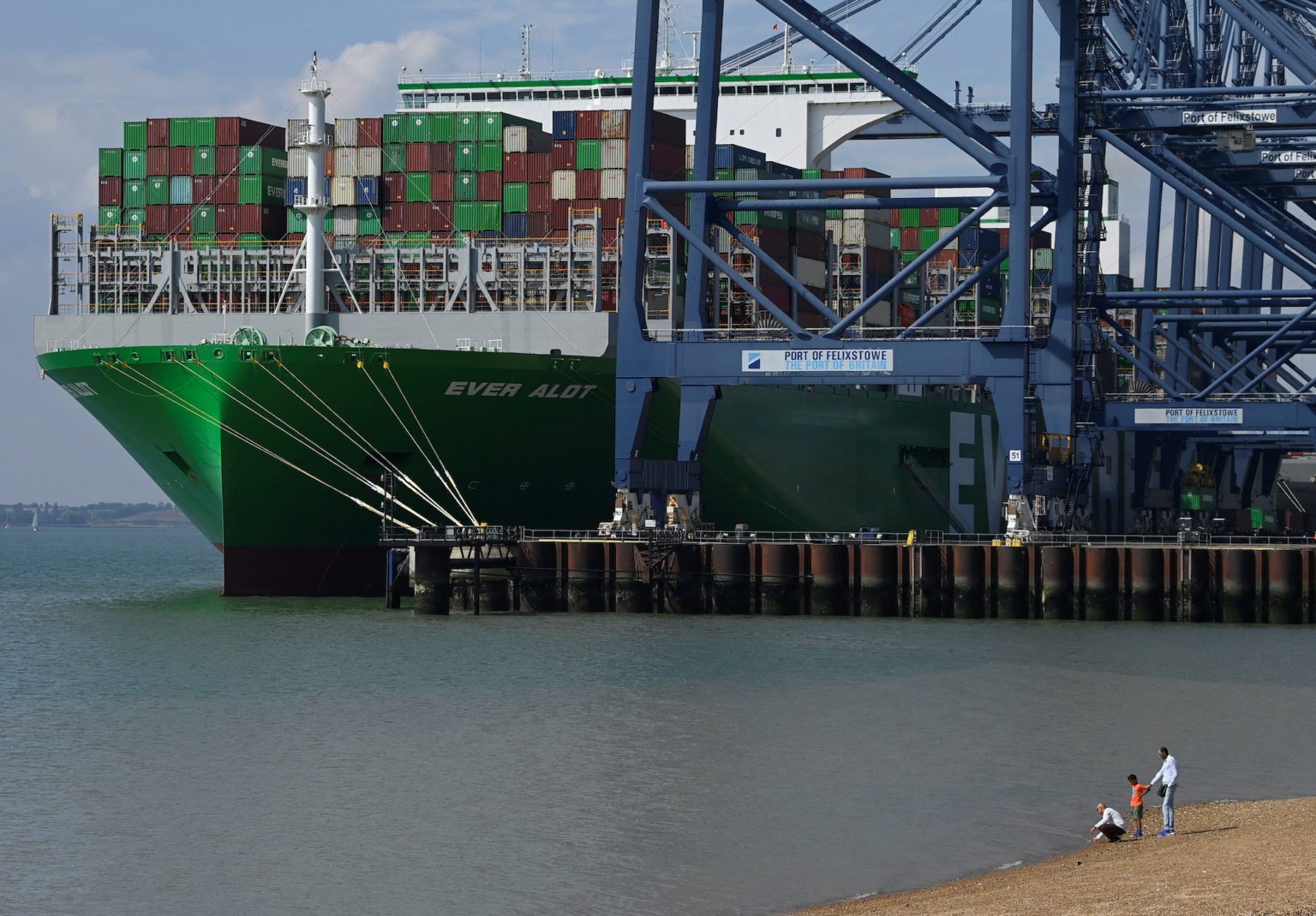 People relax on the beach with Britain's biggest container port in Felixstowe, Britain, August 22, 2022. REUTERS/Toby Melville
People relax on the beach with Britain's biggest container port in Felixstowe, Britain, August 22, 2022. REUTERS/Toby Melville
As part of this expansion, ships navigating domestic waters will need to obtain permits for each metric tonne of carbon they discharge, thereby integrating the cost of environmental impact into the pricing of maritime fuels. This move aligns with the UK’s comprehensive plan to hit its net-zero emissions goals while also sustaining economic expansion.
In a collective statement, ministers from the UK ETS Authority said, “The publications released today aim to involve businesses, offer clear guidance, and motivate them to reduce emissions as we move towards a more sustainable future.”
The alterations initially disclosed in July are set to be implemented starting in 2026.
This venture also introduces groundbreaking measures for carbon capture and storage, offering particular advantages to industries with high energy demands. The program will acknowledge alternative transportation methods, such as shipping, road, and rail, for transporting captured carbon to underground repositories.
This enlargement builds on the effective track record of the UK ETS, which has been active since 2021 and already extends to the aviation, power, and industrial sectors. The system utilizes a market-driven strategy that establishes a carbon price, motivating businesses to diminish their ecological footprint.
The reveal of this expansion aligns with the UK Government’s pledge to establish the nation’s initial carbon capture facilities, which are expected to create 4,000 new jobs and draw in £8 billion of private investment across Northern England.
For those in the maritime sector, the program has been designed with meticulous provisions in mind, paying close attention to the needs of Scottish island communities and ensuring compatibility with regional and global emissions pricing systems.

